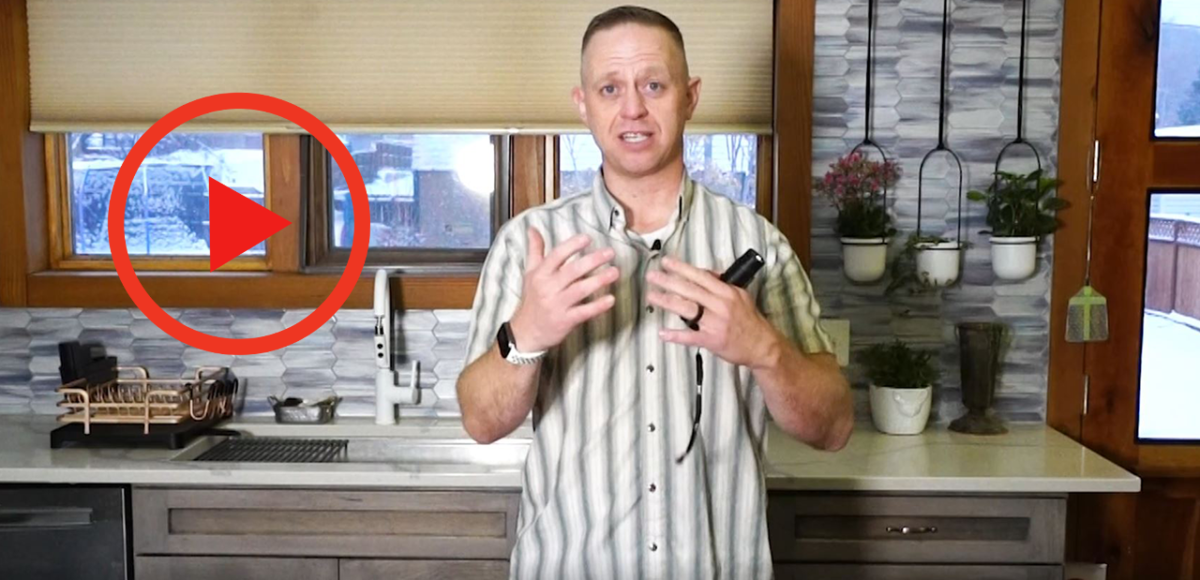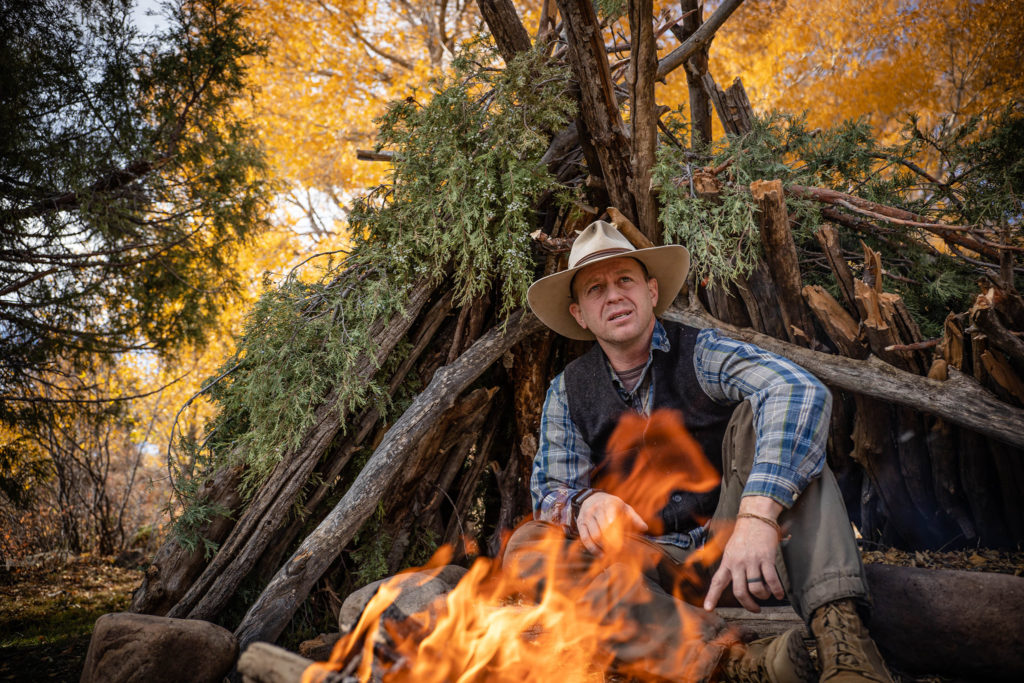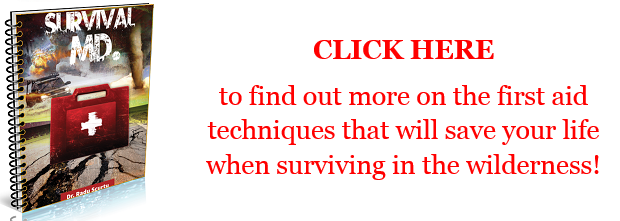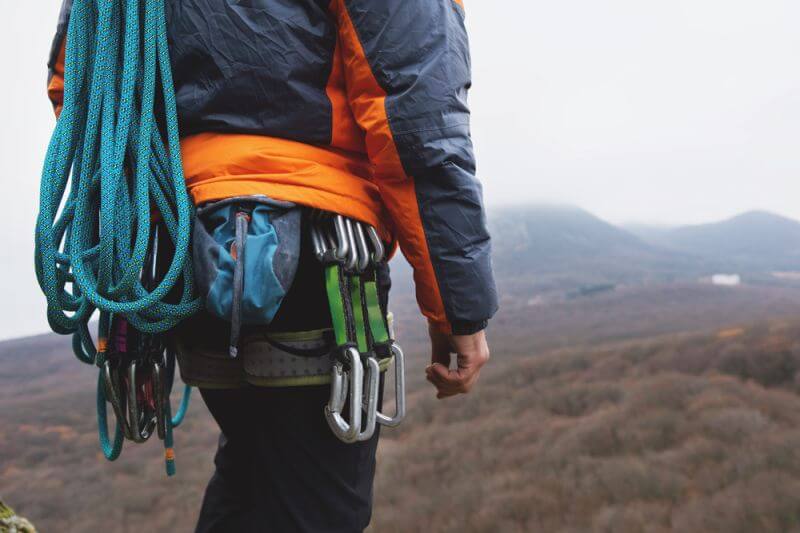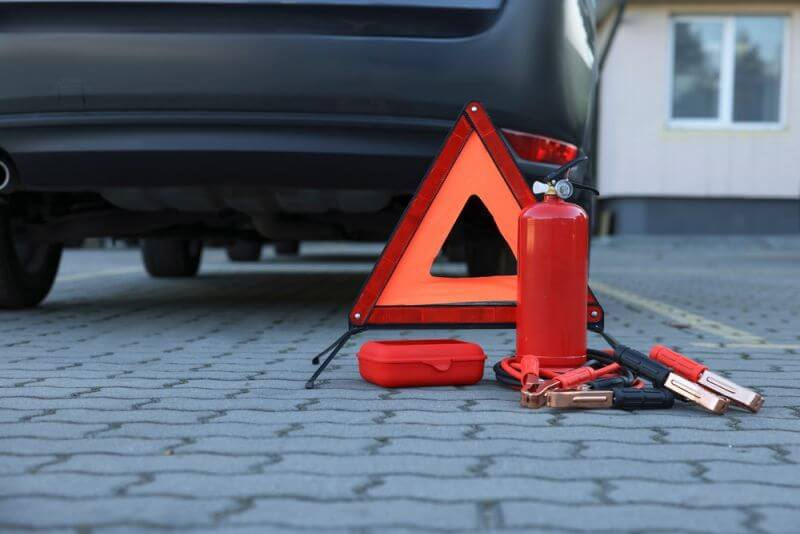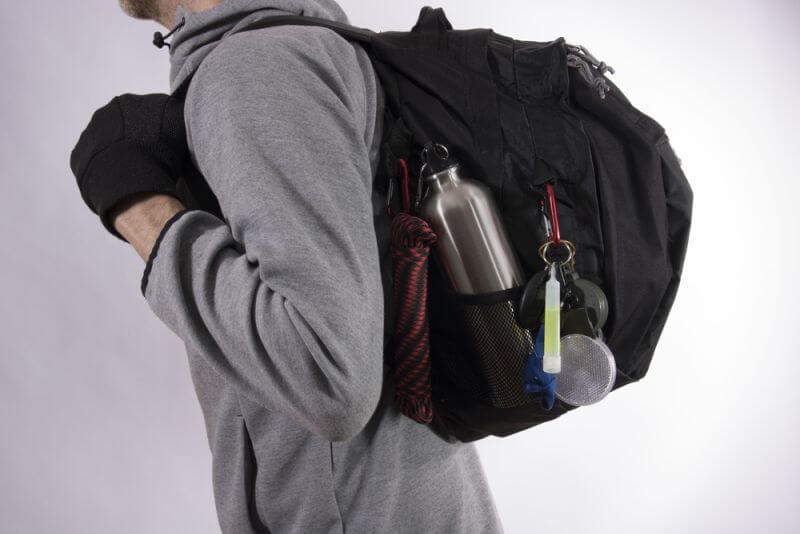Hello,
This is Tyler White with Survivopedia.
I want to introduce to you the concept of layering your EDC.
Everyone wants to have a knife on them and a knife in their everyday carry bag, and a knife in their bug out bag, and a knife in their inch bag, in their car and in their home and everything.
The reality is, we can’t always afford that kind of thing.
So, if you can layer it and have one kit that goes inside the next kit and so forth so that you have a system that you can fall back on, you become much more effective.
I’m gonna talk to you about how I do that right now. On my person, I just showered, I don’t have very much on me, but I do have my pocket knife. It’s easy to EDC a pocket knife on the regular. Something super useful. This one has a can opener. It can be locked so that it’s essentially like a fixed blade because in some areas we can’t have fixed blades. I prefer a fixed blade when it comes to survival knives, but you take what you can get.
Another thing that you’re going to want to have on you, or you probably already do have on you, is the cell phone.
So, when it comes to a cell phone, you can download a ton of apps. You can download logistic apps, you can communicate with people. Everything from voice-over IP to phone calls to SMS texting.
There’s a multitude of ways that you can communicate. Those ways can go all the way up to adding a satellite device to enhance the range of your phone. So, with my phone specifically, I have the ability to take a satellite connection through Bluetooth and get satellite data.
So, one thing that you can do to enhance your phone is have some sort of a satellite texting device, so that even in when you don’t have phone coverage, you’ve got phone coverage and then conversely, this device receives satellite data and turns my phone into a GPS device so that I can have Maps.
So, if you’ve got a phone in most likelihood, it’s only going to work for about 24 to 48 hours.
The next thing that you need to remember to bring with you at your base level, as some way to recharge that phone, be that in your vehicle or at home.
Have a way to recharge that phone. But understand if you’re preparing against SHTF, maybe a EMP or something, you need a secondary addition to that. That is failsafe.
If your vehicle breaks down and it can’t create electricity or if your battery died or if you’re walking or whatever, you want some sort of a battery system that you can plug in.
Now, I do this a little more unorthodox. This is a woman flashlight.
And basically, I will, I will use this because I can charge it up and use it like a flashlight. Or, I can plug into it and use it like a spare battery to recharge my phone.
You can carry around a battery, which I do often, because I want my kits to be modular or you can get a flashlight that will also recharge your battery for your phone. Because your phone is a flashlight, just as much as the flashlight is a flashlight.
So, this is essentially a dual purpose device. Something that can recharge my devices or something I can use as a flashlight. The other thing to remember about a flashlight is the fact that if you are in some sort of an earthquake or something, the building comes down on you, even in the middle of the day, the first thing you’re going to want is a flashlight.
So, make sure you’ve always got power to your phone or access to a flashlight at your base level EDC.
Depending on where you live, concealed weapons permit and a firearm is the best prevention against violence, or maybe you’re in a situation where you can only use mace, carry some sort of the self-defense device. Ultimately survival is “Don’t die.”
So, the next logical question is “What’s going to kill me first?”
Whatever that is, prepare against that.
Or, “what am I’m gonna need first?”
Whatever that is, prepare against that. At a basal level you should have your keys, your knife, a firearm. If you can, maybe some mace, maybe some martial arts experience, your flashlight – a way to recharge your battery in your phone.
That’s the ultimate core lowest level. If you are going to carry a firearm, add a tourniquet in a medical kit to that. Because if you need to use it, you’re gonna need to use it.
Okay, when it comes to the next level, I have a couple of different options that I like to use whether I am running around downtown.
Something like this bag, or whether I’m going hiking, something like that.
What I mean by these two little EDC bags is this is just the next level up.
I have a large Medical Kit inside of here. I have my blood type. I have personal need items. If you have hearing aids, you need hearing aid batteries.
If you have diabetes, you’re going to need insulin, whatever those personal need items are, it can go into a bag like this. Also, if you want to carry a larger battery, it can go in a bag like this.
I will put my firearm in this bag. It’s locked inside of a nice Kydex container right there, right? Goes down inside that.
I have my medical kit right there and I have backup ammunition and a backup flashlight that always stay in this back.
So, the value of a bag like this is the fact that it looks just like a sling bag. Like some sports store sling bag that I can carry, but I’m able to keep a firearm in a medical kit in it, and I’m able to take whatever basal level EDC from my knife to my phone or my keys or whatever and I can stick it in this bag. That way if I’m going to go work out I can lock it in a secure container inside of my vehicle that’s locked or maybe locking in a locker room with a padlock of some sort, but I can secure it if I go swimming or working out at the lowest level and I can still have access to him.
So, if I take the count apart of this for being in the backcountry, it might be something like this. Now, this is my hill people chest rig, which might throw a firearm in right there. I can add or remove stuff from here. Drop a flashlight in it. Whatever I want.
This rig right here, specifically has nothing in it because I don’t use it as often. But if I decide I want to wear a chest rig because I’m going to put a backpack on. I don’t want to sling bag and I want something a little more quickly accessible. Again, I take those EDC items and I stick them out of here.
One thing, I might suggest having a rig like this, on a permanent basis because it’s going to the backcountry is a lighter. A way to create fire. One of the first things that kill people when they are in the backcountry is exposure. That one of the best ways to prevent against exposure, at least when it’s cold, is a lighter which create heat or a water purifier in the summer so that you can cool yourself down. Whatever your situation.
Okay, if we’re stepping it up, even at another level, this is a bag that I primarily use for shooting, but it’s gonna represent a get home bag or a bug out back. Let’s define “get home and bug out’’, right?
So, this can be an EDC and everyday carry back and the contents of this can easily be switched over to this larger back. Why the larger bag?
Well, maybe I’m going out for a bigger duration of time. Maybe I’m just going shooting on and I want to put a long gun in there. Maybe you want to carry more equipment.
Whatever your reason the modularity is what’s important? This bag has some semi-permanent items to it. I’ve got hearing protection, flashlight, because this bag is used regularly for shooting. So, back to defining it and every day carry bag is something I can keep on me all the time.
So, my everyday carry is what I have in my pockets, every single day, or what I carry with me in addition to what I have in my pockets.
Always try to have your firearm on your body if you have one.
So, either keep the sling bag on you or keep in your pocket.
Now, a bug-out bag is “Oh, no, everything horrible just happened. I have to get out of this specific location.”
If we take 911 and use that, as an example, it would be phenomenal to have a bag like this with some socks or maybe some shoes in it, because you’re walking home.
You’re in downtown central New York City, you no longer have access to the subway. You got to walk home.
So another, another version of that might be me working five miles from my home. That’s not as bad as what happens in downtown New York when 911 happened, but I still have a big duration of time to walk home.
So if I say, if everything goes to hell in a hand basket, right here, really bad right now, what do I need to do?
Well, I need to be prepared against the weather, I need food, I need water, I need communications and I need medical, and preferably, fire for personal defense, or some sort of personal defense solution.
And this bag represents that. Because I can put a thing of water in this. I can throw a couple of Gatorades in there and drop a Snickers or two, right?
I can load a bunch of, I can put an extra jacket in there extra socks, even some running shoes and I can just leave that in the back of my car or wherever it is.
This bug out bag is something like go too, because something bad happened and I want to leave. It’s not something that I carry every day.
This could represent something that I carry every day depending on where I’m at, or this could be too much that is up to you. The next level I’m gonna talk about is “I’m never coming home bag.”
I don’t like the idea of a bag being the thing that keeps you from ever coming home. I like to call it my “I’m never coming home vehicle.’’
So, I would expect if something so horrible happened, like your house just burnt up in a forest fire or your house just got destroyed with an earthquake or there’s an army coming through, and I need to leave permanently.
Take these small kits, throw them in your vehicle and get out. If you have access to a small camper you can grab, take it with you!
One of the best preventions against the damage of an earthquake crushing your house is to have a camper out back.
That thing is on wheels and it’s gonna bounce.
So, take these ideas. I know I just dumped a lot of information on you.
Make it modular!
Have what you need as a base level on your person.
Have something that you can carry everyday that looks like it’s not what it is.
And then have some sort of a bug out option that you leave in your vehicle that is securely encased and locked and not within visual line of sight behind sunglasses easy to break.
That way you can at least be prepared in case of an active shooter, in case of a case of the munchies or in case of a planes hitting your building or an earthquake or something horrible happening and you got to walk home.
Whatever those distances are, whatever that weather is in your location, will dictate what goes in your kit.
Hopefully, this is valuable to you and thank you for watching.
Disclaimer: The content of this book is for informational purposes only and is not intended to diagnose, treat, cure, or prevent any condition or disease. You understand that this book is not intended as a substitute for consultation with a licensed practitioner. Please consult with your own physician or healthcare specialist regarding the suggestions and recommendations made in this book. The use of this book implies your acceptance of this disclaimer. The publisher and the author make no guarantees concerning the level of success you may experience by following the advice and strategies contained in this book, and you accept the risk that results will differ for each individual.


